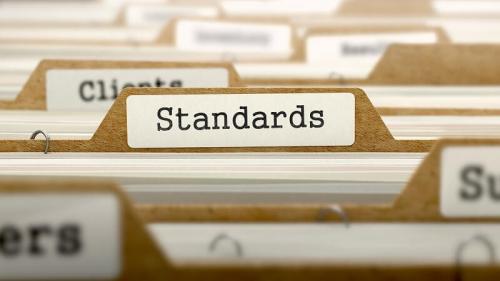Like in many industries, there are ISOs, or international standards, available within stud welding to indicate that a company or product is certified as high quality and reliable. If you work within the stud welding industry, understanding these standards and working towards certification could help you to improve and expand your business. It also ensures that you’re following proper safety and quality codes.
Welding Codes
Internationally, there are many welding codes. Some are specific to certain countries or regions, while others are international. These codes are designed to help ensure that welding machinery is of the highest quality and people involved in the process, from manufacture to use, are safe and know best practises.
Codes and standards help to facilitate trade between different companies, even internationally. They act as a baseline measure and assurance of quality so companies feel confident when buying a product or service.
British Welding Standards
The standards and documents listed below are specific to Britain and all apply to welding, albeit a range of different types of welding.
BS 499-1 – This is a glossary of welding terms and symbols that should be used in welding industries.
BS 499-2C – Similar to above, but is more specific: a chart of European arc welding symbols.
BS 2633 – These are specifications for Class I arc welding of ferritic steel pipework that’s intended to carry fluids.
BS 2971 – Specifications for Class II arc welding of carbon steel pipework, intended to carry fluids.
BS 4515-1 and 2 – These are specifications for welding steel pipelines both offshore and on land.
PD 6705-2 and 3 – Specifications on the structural use of steel and aluminum.
International Standards
There are over 18500 international standards, or ISOs, with over 1000 new ones published each year. Even specifically relating to welding, there are numerous different standards that could be useful to different companies according to the type of welding and what its purpose is. For example, ISO 14112 specifically related to small, gas welding equipment kits.
The international standard that we’re most interested in at Taylor Stud Welding is ISO 13918 because this relates to stud welding.
ISO 13918
This is a welding standard that relates specifically to studs and ceramic ferrules used in arc stud welding.
The ISO 13918 specifies that it can be used in all fields of metal working, but is particularly useful for those who work with arc stud welding and related products and services.
It covers the requirements of studs and ceramic ferrules that are used for arc stud welding, including the dimensions, materials and mechanical properties of the specific kinds of studs and ceramic ferrules.
It covers a wide range of different arc welding studs including those for drawn arc stud welding, short cycle and welding with tip ignition. This includes:
- Fully-threaded studs
- Virtually fully-threaded studs
- Partially threaded studs
- Threaded studs with reduced shaft
- Insulation pin/nails
- Studs with internal thread
- Shear connectors
- Threaded studs with flange
- Unthreaded studs
The ISO 13918 helps companies, businesses and manufacturers to better understand the standard quality for arc stud welding so as to provide a higher quality product or service.
Read more about this by visiting Taylor Stud Welding's blog. Or you can discover other information on stud welding such as this one about international stud welding.

Comments